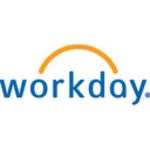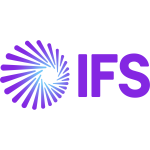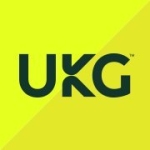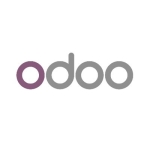What is our primary use case?
Based on my technical background on Oracle EBS, I can tell that the primary use case of this solution is having a sophisticated software, an ERP, in the environment. It is to have a software system that consists of global business applications with built-in integrity. Generally, my customers use it for their business applications: CRM, Financials, Human Capital Management, Procurement, Supply Chain and more. There are also some seperate applications outside these ERP systems, but mostly, they are also tightly integrated with EBS.
How has it helped my organization?
EBS is a software as a whole. It includes its own database (Oracle Database), an application server (Oracle Weblogic), and software. It has cross-industry capabilities and makes customers operate in cost-efficient way. As an ERP system, EBS offers lots of applications built in. So it helps the customer to automate their back office processes and let them make correct, fast, and reliable decisions. In Human Capital Management implementations, customers benefit from having a complete HR system and do all the HR work using the EBS screens. By customizing the product, customers can make the application processes be compatible with their special needs. Localization and translation options are also available with the product. Although the software is built by an American company (Oracle), other languages can be enabled and localization can be deployed without touching any code. With these features that support having a global software environment, customers who are working worldwide also gain an advantage.
Using EBS features like Oracle workflow, lots of the processes are automated and made easier. Mobile Web Applications can be used to make the relevant users be able to use the applications directly. Successful implementations, success stories, big install base, know-how and continuous support of the community (Oracle itself and EBS consultants), make the customers feel safe. With the integrated service oriented architecture gateway (SOA Gateway) of EBS, EBS APIs can be triggered outside (from Cloud or from other applications).. This feature lets customers be able to integrate their application with EBS easily. When core business needs something from the back office, it just uses SOA Gateway to retrieve the meaningful data from EBS. All the technology and software is from Oracle. This is also very important to be able to get single vendor support when required. The technology stack is built on Oracle Technologies. It is not hard to find an expert when needed both for development and administration.
When I put these aside, EBS saves time and increases the efficiency for the customers. By using the tightly integrated application of EBS, customers, provide the solutions for their business from a single source. The ultimate application design, high-level software engineering and power of the Oracle technologies delivered with the product are felt at any moment.
What is most valuable?
EBS has lots of application families and lots of features. It is modular in deployment and flexible enough to let the customer increase the built-in capabilities and enable new applications when needed. These are very important things at hand in case there will be a need to expand the product capabilities and/or implement new projects.
EBS has a certain history. There is a certain know-how with documentation for almost all its use cases.
The product relies on Oracle technologies, the world's leading Oracle Database and Oracle application tier. This is valuable because, while it satisfies lots of customer requirements and standards, it also means that the technology layer gets continuous improvements and updates, as Oracle keeps the components on this layer always up-to-date.
EBS 12.2, the newest release also provides an Online Patching option for supplying near zero downtime both for applications (functional side) and the technology stack. This is valuable in mission-critical environments. Online patching removes the barriers for an upgrade because it is online. It gives the customers the ability to make downtime negotiations easier. Using online patching, they have planned downtime and it is measured in minutes.
For customers who are using a virutalized environment, Oracle delivers VM templates (for Oracle VM Server). This feature also provides easy enablement for applications.
High availability and disaster recovery architectures make the product continuously operate by any means. Continuity can be guaranteed with these architectures.
Oracle gives high importance to this product and following a "Continuous Innovation" release model for Oracle E-Business Suite 12.2. EBS 12.2 will be supported at least until 2030.
What needs improvement?
Administration takes some effort. Administrating the technology stack is not so complex but application aware database administration and following the new methodologies like online patching can be a little complex and time consuming. Oracle should ease the administrators jobs and do some innovation on this administration area as well. Oracle Autonomous Database is Oracle's leading technology these days. Using a similar approach, application stack may become a little more self-managing.
EBS still leverages Oracle Forms technology. Oracle Forms might be considered as an old technology when it puts the client machine into the picture. Clients are using their web browser to connect to the EBS and use several functionality and applications using the web browser only. However, some applications automatically runs Oracle Forms through a Java applet on the client. Of course, this creates a fast, easy-to-use client experience, but it has disadvantages as well, such as, the requirement to manage the client side java.
For how long have I used the solution?
I have been using and administrating this ERP system (Oracle EBS 12.2) almost since it was released. I have used Oracle EBS for human resources and financials in one my ex-companies and I have worked in the implementation of several EBS 12.2 projects in different customer environments with different product families. It has been more than five years now. I have also used the earlier releases of this product, such as Oracle EBS 11i and R12). Oracle continued to enhance the product over the years, so this is a review for the latest release, version 12.2.
What do I think about the stability of the solution?
It is quite stable. It has been in the market for a long time. It is a product of the Oracle Corporation and was created in late 1980s and Oracle continued to enhance the product over the years. The latest release (release 12.2) was created in 2013. Before that, we released R12 (12.1 and 12.). Even release 11i which is quite old, is still used by customers.
The architecture, code, and support are by Oracle. The product is stable and behaves as expected, according to the documentation. Customers can get the benefit from business continuity, recovery, load balancing, fault tolerance, consistency, and scale-out architecture when the implementation is done accordingly.
What do I think about the scalability of the solution?
It is highly scalable. It supports scale-out architecture with both load balancing and high availability. Applications can run on multiple nodes and database can run Active-Active on Oracle RAC (Real Application Clusters). This increases the computational resources. Note that, this is not only for increasing the throughput, but the high availability as well.
As EBS can leverage Oracle Real Application clusters techonology in the database tier, EBS databases can scale-out by adding database nodes to the configuration.. Thus, EBS database workload can be distributed to multiple Oracle database instances and EBS database throughput can be increased almost linearly.
Similarly, in the application tier, we can have multiple application nodes working together to increase the application tthrougput.. In this context, we can have multiple application nodes, each have their own application servers (Weblogic), their own runtime and batch proccesses. By having this ability, we can increase application performance and make Oracle EBS handle several concurrent user connections. Batch processing (which is called Concurrent Processing) can also work in the parallel mode (parallel across multiple application nodes) and can also leverage multiple Oracle database instances to provide better and guaranteed throughput.
When needed, more application and database nodes can also be added to the configuratio. We can also declare the role of these nodes according to our needs.. For instance, we can have one application node for serving the requests of internal users and we can have another application node for serving the requests of external users.. Similary, we can have a application node for serving all the web requests, and we can have another application node only for batch processing.
Having a multi-node application tier also provides high availability. That is, if we use a load balancer and configure our EBS well, application contiunity is guaranteed in case of a application node failure.
Moreover, EBS application and database tiers can be replicated to the disaster recovery sites for disaster recovery.. Oracle Data Guard Technology is used for database replication. A replication tool (such as rsync), a filesystem replication feature or a storage replication feature can be used for replicating the application tier to the disaster recovery sites.
This type of a configuration can provide application continuity in case of a site failure.. Morever, active dataguard can be used for offloading some production reporting to Oracle EBS disaster site database instances..
How are customer service and technical support?
Customers get their support from the Oracle support portal (support.oracle.com). Customers can also get local support from the Oracle Partner companies, which are quite capable of both implementing and supporting the solution. Both functional and technical support is available. Additionally, there are lots of public documents available, such as, books and blogs about EBS. This is also advantageous for customers who want to learn the product on their own and keep their support and consultancy cost minimum.
Which solution did I use previously and why did I switch?
My customers and my ex-companies have used several custom and packaged applications before switching to EBS. They were using different application for different purposes. The applications they were using weren't modular..
The decision for switching to EBS was to have a centralized software system for bringing all the required functionalities and applications together. For one of my customer, the decision was made by head quarters which was located in another country. It was a big, global holding company and the head quarters decided to use the same software for all the companies under its control.
How was the initial setup?
Technically, it is straightforward. However, there are challenges in the functional side. This is expected as implementing ERP is a complex subject.
When managed with a proper project plan and right resources, projects are completed on time and with success.
What about the implementation team?
In most cases, I was on the vendor team that implemented the projects. In my experience, Oracle partners who are specialized in this area can be classified as experts with knowledge and real life expertise.
What was our ROI?
By using EBS, and putting almost all the functionality and applications integrated together inside this ERP, maintenance and consultancy costs previously required for different applications and application vendors can be reduced.
The labor and time required for manual data entry is avoided.
A better integration across the divisions is provided with these ERP implementations. This also provides a better visibility and reporting. Also, lots of business processes can be automated.
Thanks to online patching, Customers gain an opportunity to decrease their downtime.
What's my experience with pricing, setup cost, and licensing?
In order to minimize the implementation and consultancy costs, business lines should have proper definitions. They need to have a proper way of retrieving their data, which should be structured well.
Both the current projects and future projects should be defined well. Licensing should be done according to current and near future plans.
Customer should do their sizing and understand their computational resource needs. They need to start sales negotiations according to their actual needs.
Customers should evaluate the partner who is responsible for implementing the project.
The better the partner, the higher the success rate of the project.
Which other solutions did I evaluate?
We did evaluate other options. Customers usually evaluate solutions from local software providers. However, most of the time, enterprise customers conclude that those solutions are less capable than EBS. Most of the vendors that supply those solutions are quite smaller when compared to Oracle..
According to my experience, enterprise customers also consider SAP. In these considerations, the conclusion usually depends on the costs and are indexed to the success in the sales and pre-sales activities.
What other advice do I have?
Customers can run Oracle EBS on Oracle Cloud today.. If the client's needs and expectations are met and they are compatible with the regulations they are subject to, they can also think of running Oracle EBS on cloud.
Which deployment model are you using for this solution?
On-premises
Disclosure: My company has a business relationship with this vendor other than being a customer.














